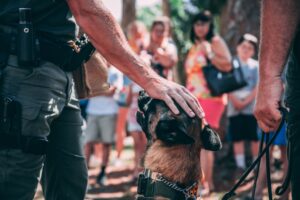Understanding Drug Interdiction
 Drug Interdiction groups traditionally work from a police agency’s narcotics division or bureau. They tend to be successful, because drug interdiction is the sole responsibility of the team. Other parts of the agency such as traditional patrol officers and street crime units can work these programs as well.
Drug Interdiction groups traditionally work from a police agency’s narcotics division or bureau. They tend to be successful, because drug interdiction is the sole responsibility of the team. Other parts of the agency such as traditional patrol officers and street crime units can work these programs as well.
A successful interdiction program includes many elements and must solicit help from the local community, identify drug traffickers, their storage and transportation methods. It also helps to understand how the illegal drug trafficker thinks.
Proper training is essential in order for your department to be successful. Sam Candelaria has over 22 years of experience in Drug Interdiction and founded Law Enforcement Training Techniques & Consulting (LeTTc). He has trained hundreds of law enforcement personnel across the country in his three day seminars. Here is small portion of what his course covers.
Help from Local Community
Business owners, managers, and staff essentially participate in a “business watch program” and volunteer to be the “eyes and ears”for law enforcement. The processes of searching for anomalies and separating legitimate guests, passengers, and individuals from drug traffickers are the focal points of these programs. The businesses then contact law enforcement to report suspicious activity. They act only as reporters of information.
Identifying the Drug Trafficker
Drug traffickers and couriers are compelled to travel and behave in a particular manner,due to the nature of the drug business. Last-minute travel is common among drug traffickers; they cannot make travel plans too far in advance because they do not know the exact times when drugs will be procured by their source of supply.
Transportation & Storage
Law enforcement has identified a variety of legitimate businesses that are used by individuals and drug organizations in the drug trade, such as hotels, commercial bus systems,commercial airlines, storage unit facilities, commercial parcel services, the U.S. Postal Service, trains, and rental vehicle companies. Each of these businesses has been identified as a conduit for drug traffickers to transport, store, and facilitate flow of narcotics.
Inside the Mind of Criminals
A strategic plan based on solid investigative efforts must be put in place to aggressively target drug traffickers and their organizations. We must remember that criminal and drug trends constantly change, but human behavior remains essentially the same when individuals are engaged in criminal activity. Investigators are best prepared to deal with these issues when they are properly trained.
